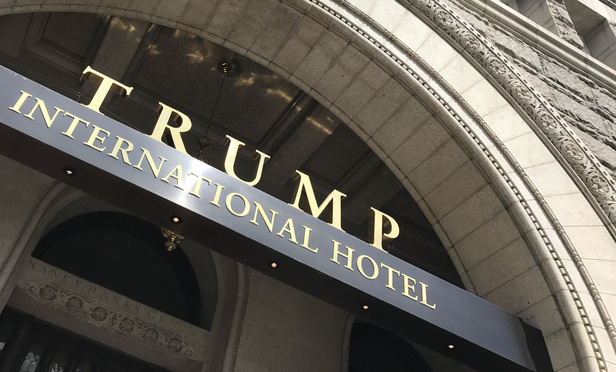► Every English dictionary definition of “emolument” from 1604 to 1806 relies on one or more of the elements of the broad definition DOJ has rejects in its brief: “profit,” “advantage,” “gain” or “benefit.” Furthermore, over 92 percent of these dictionaries define “emolument” exclusively in those terms, with no reference to “office” or “employment.” By contrast, DOJ’s preferred definition—“profit arising from office or employ”—appears in less than 8 percent of these dictionaries. Moreover, even these outlier dictionaries always include “gain, or advantage” in their definitions, a fact obscured by DOJ’s selective quotation of only one part of its favored definition from Barclay (1774).
► The suggestion that “emolument” was a legal term of art at the founding, with a sharply circumscribed “office-and-employment-specific” meaning, is also inconsistent with the historical record. A vast quantity of evidence already available in the public domain suggests that the founding generation used the word “emolument” in a broad variety of contexts, including private commercial transactions.
► [N]one of the most significant common law dictionaries published from 1523 to 1792 even includes “emolument” in its list of defined terms. In fact, this term is mainly used in these legal dictionaries to define other, less familiar words and concepts. These findings reinforce the conclusion that “emolument” was not a term of art at the founding with a highly restricted meaning.
“Perhaps most remarkably,” Mikhail wrote, “DOJ asserts that ‘[t]he history and purpose of the [emoluments clauses] is devoid of concern about private commercial business arrangements.’ This assertion is false and inconsistent with the best explanation of the broad sweep of emoluments prohibitions adopted by American governments from 1776 to 1789, many of which were designed specifically to prevent corruption and restrain public officials from placing their private commercial interests over their public duties.”
Mikhail wrote in his conclusion: “DOJ’s use of founding era dictionaries in its brief, however, leaves much to be desired. At best, its historical research was shoddy and slapdash. At worst, it may have misled the court by cherry-picking and selectively quoting its preferred definition, ignoring a vast amount of conflicting evidence.”
Mikhail said a second study is underway of dictionaries from 1806 to the present in an effort to see how and why definitions of “emolument” may have changed over time. If that study shows the definition has evolved more in line with the Justice Department’s view, courts might be more likely to accept that view, he said.
Two points could push in the other direction, he said. “First, I assume that many judges might care more about the purpose of these clauses—to prevent corruption, conflicts of interest, and the like—and the extreme indifference and even contempt President Trump has shown toward well-established constitutional norms than they do about dictionary definitions or lexical meanings whether past or present,” Mikhail said. “Second, even DOJ’s preferred definition of ‘emolument’ might prove difficult for the president.”



